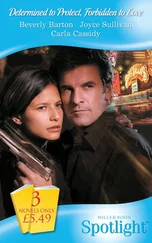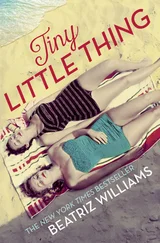You can do whatever you like, she said. That’s what you’ve always done. It has nothing to do with me anymore.
Or, I’m not only talking about returning to the village. I’m talking about coming back to you. About giving us another chance.
You’re too late, she said. I wondered whether in her voice I was detecting a note of sadness, of disappointment, or was it simply the same impassivity that I’d heard in our brief phone conversation. You can’t turn the clock back. I don’t want to know what they’re offering you or what you do there. I pity you and pity them if you are thinking of cementing this twisted union of yours. If what I am saying isn’t clear enough, I’ll put it another way, and then you’ll finally realize that I really mean it. I want a divorce.
My heart fell, and I could only repeat, Or, I told him no, that I wasn’t going to continue with them. You forced me to choose, and I made the choice. All I can do is regret that it didn’t happen years ago.
You don’t have a choice here, Orit answered, her eyes closed, her face tightly drawn. Then she opened her eyes and stared at me. I too had a week without you, and with no expectation of you returning. And I’m sorry to tell you it only did me good.
There was no sadness there, no malevolence, and no note of victory. Perhaps just a huge sense of weariness.
I’m no longer an option that is open to you, she continued. Now I want to go back to work.
She turned and climbed the stairs to her studio, closing the door after her and, with it, two decades of life.
Bewildered, I went to our bedroom to collect the rest of my things. To my surprise I found dumped in the corridor two suitcases and several boxes full of my possessions.
Almost without thinking, my legs weighed down with fatigue, I loaded up the car. When I reached my parents’ house I went straight to my room and to sleep. The suitcases and boxes remained in the car, and for days I didn’t bother to unpack them.
I considered returning to the village to run my parents’ farm, living with them and enriching their remaining days. I knew that I would enjoy working in the fields.
Equally, I knew that my nights would be full of pain and that every time I went anywhere near our/her home, and at every chance or arranged meeting between us, I would hurt. There would also be the constant temptation of going into the house and testing the waters. And so I informed Udi that I was accepting his proposal and rented a small apartment not far from the line of beach hotels in Tel Aviv. Glimpses of the sea could be caught through the narrow spaces between the houses opposite. In the evenings I’ll watch the sunset. At night I’ll walk along the corniche, drink beer in one of the restaurants with their chairs and gaily-coloured lights spread out across the sand all the way down to the lapping waves. And in the mornings, if I have the energy, I’ll run the length of the shoreline.
In the event, never getting back to the apartment before nightfall, I saw no sunsets. After making my way down to the corniche a few times to sip coffee, nurse a beer, or drink a milkshake among constantly changing groups of young revellers with whom I had nothing in common, I stopped doing it. I felt closer to the homeless, with their matted hair, lying along the promenade or roaming aimlessly along it, than to the youths passing by as if shadows in the night.
Tel Aviv is a sad city for single people, especially if they are already in their late thirties. Once or twice I thought of taking an escort girl, less for the sex for which I hardly felt the need, more for the company. But I was too tired for it. I would linger on in the office and once back in my apartment, went to bed early. When I had difficulty falling asleep, I read. And because I wanted to fall asleep quickly I reached for the ‘big bores’, those classics that seemed to me to have been written exclusively for the literary elite. Proust, Joyce, Yizhar. To my surprise, I managed to really get into them and stretch my reading time until my eyes finally closed. And only on odd occasions when I got up very early and didn’t want to go to the office and appear to be one of those workaholics, did I go down to the beach and walk along the shore. The running never materialized. It was more than my body could cope with.
I embarked on the role of head of the planning department with indifference, and again my low-key approach was misunderstood. Once more a few considered words from me were interpreted as the result of measured thinking and composure. And somehow my suggestions were always accepted. Experience allowed me to fly on autopilot. I wasn’t in a hurry to be somewhere, and sat late into the night poring over charts of men, missions and stages of a mission. In the morning everything I proposed was approved.
I was giving the impression of being very industrious, so no one guessed at the turmoil that had taken over my mind or the tiredness that overwhelmed every limb of my body.
I put one mission after another on the road. All of them went according to plan and produced good results.
The success was always that of the operatives, not of operational planning. Only the agent in the field can read the situation and decide whether, when, and how to act, or whether to postpone, or perhaps withdraw. In this sense the concealment of a listening device in the basement of a Hezbollah man living in Switzerland doesn’t differ from the liquidation of an arms dealer in Salzburg. The young operatives were easygoing, alert, and good at what they did, and none of them guessed how worn out I was.
I couldn’t avoid it forever and nor could Udi postpone the inevitable. There are missions that require the head of planning to be with the men in the field. This happens when the territory is unfamiliar or when the squad’s commander needs to get authorization in the field for the chosen method of operation.
I found myself travelling to operations all over the world, including places that were categorized as ‘soft target countries’. Though I was a good advisor, I don’t think I was a good commander. The adrenalin in my body didn’t reach a level sufficient to banish the tiredness or restore my focus. In such cases experience made up for the lack of enthusiasm and talk of my ‘indifference’ did not yet point to a problem.
Each Saturday I drove to the village. My father now needed round-the-clock nursing and a carer had been assigned to him. He was a mere shadow of the man I remembered from my childhood. He spoke only with difficulty but when I sat at his side, holding his emaciated hand, straining to capture his whispered words, I knew that he was aware of my being there, but the little spark left in him could no longer bring him back to life and, in fact, filled me with sorrow.
Various tests were arranged for him. How can it be, I asked the doctors, that a person of his age can become nothing but skin and bone, barely alive, just like that. There must be a hidden cancer or something else you haven’t found and are not treating.
You’re right, old age is not an illness, one of the doctors caring for him admitted. Perhaps there is something else. But whatever it is we haven’t found it. The tests have revealed nothing more than the inevitable physical failings of advancing years which, I agree, doesn’t explain the state he’s in.
My mother wandered around the house, gaunt and restless, as if looking for something. When she came across me she would ask if I knew where the boy who used to sleep in this bed was–pointing to my room–and whether perhaps I could remember his name. This was no belated sense of humour, but a real decline in her condition. I was filled with sadness and tried to hug her, but she pushed me away as if I was a stranger. I thought that my weekends with her would renew the connection between us but even when I’d taught her to call me by my name and to repeat as a baby the words ‘you are my son’ she continued looking for the little child from that room, and didn’t understand at all who I was and what I was doing there.
Читать дальше












